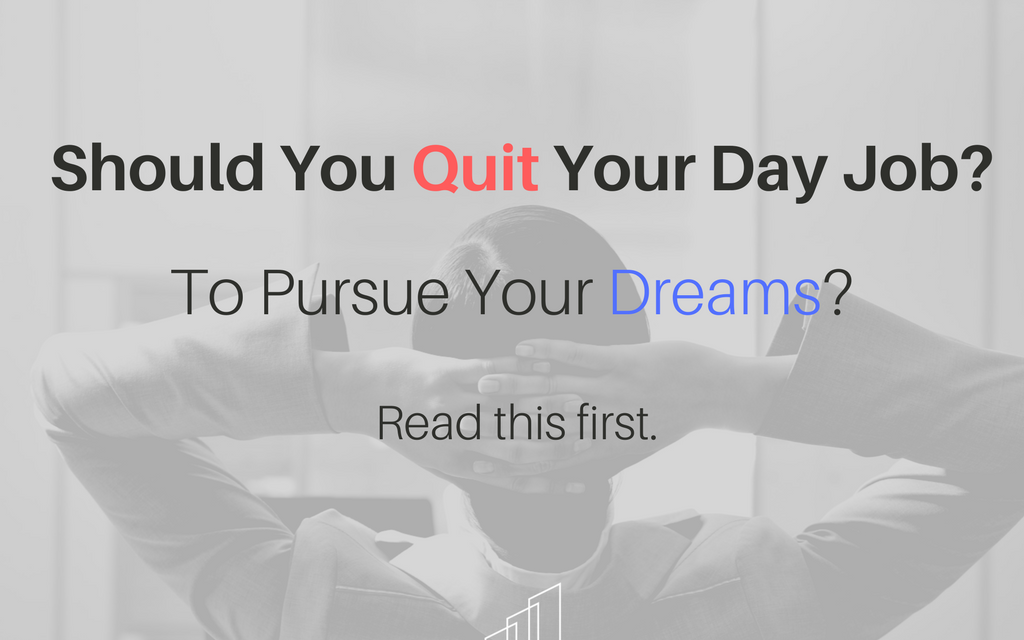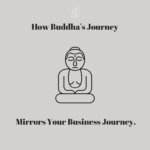Life is weird, the economy sucks, and more young people are flocking towards freelance positions. Whether they genuinely believe in their craft, or they are just pulled in through the allure of being their own boss.
Over the last few weeks, a lot of people have asked me some form of the following question: When is it the best time to quit my job and start my [freelance, music, art] career full-time?
Each time, I typically respond to their question with another question: Why?
Here are the answers I get and key takeaways from each one.
Note: For simplicity, I’ll be using the term freelancer in this article. Freelancer will be a blanket term for the freelance designer, freelance writer, freelance publicist – or the artist or musician who’s looking to take their craft full-time. Essentially, anyone seeking to take their services full time.
I want to quit my job because: I want to be my own boss.
The glitter of being your own boss is bright – but let’s pump the brakes a bit. Freelancing full time or operating your own company –does offer a lot of freedom. You can choose which projects you want to work on and which ones you want to pass. You can set your own hours and your own pay.
However, you aren’t just without a boss figure. Instead of reporting to a boss, now you’re at the helm of your clients or customers. These individuals, in a way, now dictate your operating hours and output. Clients have even more control over you in the early stages of your freelance career because they could a major and sole revenue stream for you.
Don’t want to work that day? Don’t want to do that side project that’s slightly out of scope? If this client is an important one, you may have to bite your tongue and do the work.
The feeling of satisfying your clients replaces the stressful feeling of meeting your boss’s expectations. It’s not all that different.
I want to quit my job because: I want freedom.
Freelancing will give you freedom! But with great freedom comes great responsibility. Let’s get some of the more tedious oversights out of the way.
You have to take your own taxes out of your paychecks, which can be a huge pain. In my first years of freelancing, I wracked up a bit of IRS debt because of simple disorganization.
Another perk of working in an office are company health benefits and paid vacation. You don’t get benefits or vacation time in the freelance lifestyle. Sure, there’s Healthcare.gov, which is more costly than your work plan. And you should budget for your own vacation time, but that’s easier said than done.
Another misunderstood freedom is the freedom to choose what projects you take on.
Yes! I have turned down many potential clients for various reasons. I’ve passed on projects because of low pay, services I wasn’t comfortable with – I’ve even said no to projects because they wanted to have too many meetings.
However, you won’t always have that freedom. Sometimes you lose clients unexpectedly, and you need to fill that pay gap, and fill it soon.
When I began freelancing, I wanted it to be 100% music related. I was fresh out of Sony and an ad agency that dabbled in entertainment. So, I jumped in head first searching for music industry clients. However, when those music clients went on hold – do you think I passed on the medical client? The software client? The cosmetic client? Nope, sign me up!
When I began, my services were social media and writing. But when I lost clients unexpectedly – I wasn’t too proud to take on the transcription projects, or the product description tasks. It was essential to fill that gap.
You won’t always have to take what you can get. Eventually, you have long-term and reliable clients where you can be pickier.
I was able to partner with a small but active PR firm who needed a publicist. I still do work with them to this day. I also partner with serial entrepreneurs and have become their go to PR/Communications guy over the years. These consistent projects allow me to take chances. But this took time. There’s always going to be ups and downs – even my long-term clients have various levels of work for me each month.
Clients come and go! I’ve had clients go ghost on me, but I’ve also had successful clients get bought out by large firms. Things happen. Unpredictability balances the freedom that you do find in freelancing.
I want to quit my job because: I am bored.
Yes! At least you’re honest. I find that many people who wish to freelance full-time, just want to tell people that they are their own boss. It becomes an image thing.
Secondly, people who want to freelance are just bored with their jobs. Well, maybe switch jobs before you jump into full-time freelancing?
Do things because it is feasible, not because you’re bored or you want to slap a title on your business card.
Think about this. Do you want the commitment? Or just the label?
When to freelance full time:
Begin to freelance full time when you are financially stable.
I made the leap into freelancing full time when I was making a similar amount to my day job (a little less). I also had some money in savings (in retrospect, I should have had more).
My day job, which was a large corporation, just had three rounds of layoffs. Luckily, I had been freelancing nights and early mornings (and on my lunch break). I had long-term social media, blogging and PR clients, all who made it clear to me these were long-term partnerships.
Some were personal connections; some were via UpWork, which gives freelancers an added layer of payment protection, as UpWork is the buffer for payment.
After layoff round three, I decided to make the leap into freelancing fulltime. I did this under a brand name but it was largely just me plus a few outsourced team members that came much later. I told two of my clients I had time opening up and asked if they would be open to boosting my hours. Each allowed me to take on ~5 hours more each week, which allowed me to make the leap.
Begin to freelance full time when you have quality clients.
I’ve had really awful clients. I’ve had two clients that went ghost on me because they had to serve prison sentences. Yep. For fraud, actually.
I’ve also had small businesses that were self-funded that just didn’t pan out financially. I’ve worked with very well funded startups, but had investors who controlled spending to the point where the work (read: pay) was very touch and go.
On the flipside, I’ve had very reliable clients throughout the years. The PR agency I mentioned earlier has been a very consistent and rewarding partnership. It’s only four of us, and the industry experience has led to other great projects for me. I’ve also had plenty of instances where the marketing director of one client also has another business she wants me involved with. These type of clients ensure a long lasting relationship.
Do you have projects that will be recurring? Is there flexibility where you can add on to the hour allotment? Or add more clients to your workload? This is easier for some. Some companies may need a graphic designer each week, some may only need one as needed. Some clients may need a writer each week, some may only need it for website adjustments.
Doing social media and PR has put me in a good place to find consistent work. Find ways to ensure your work is needed consistently. If you’re a graphic designer or copywriter, maybe look into social media or another skillset that can keep you moving long-term.
Begin to freelance full time when you have savings.
It’s critical that you have savings. When business is slow at your 9-5, guess what? You still get a paycheck. But what about when business is slow for your freelance clients? Your pay gets cut, or your contract gets put on hold.
Some of the most reliable projects I’ve had have gone on hold. Multi-million dollar companies have put my contracts on hold. It just happens. Or, you may be sick and have to miss out on a few days of work. This is why savings is critical.
Each month, as you set money aside for taxes – set money aside for savings. You can’t predict a lot in this lifestyle, so it’s imperative to have some cushion for emergencies.
These are just a few musings on the topic. Feel free to email me for any further advice. Take the leap! Just ensure you know where you’re jumping!








